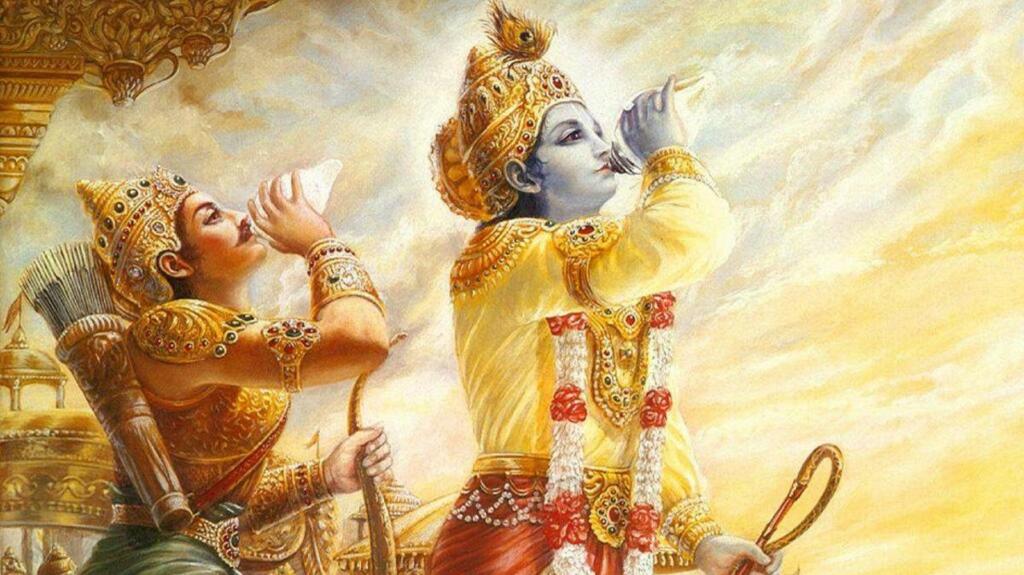- Vasudhaiv Kutumbakam, is constantly being used to push the Modi government for supporting Ukraine
- The concept has become a tool for the weakest of the bunch to rationalize their defeat from stronger ones
- In the wake of rising capability, India needs to adopt the more pragmatic approach of Veer Bhogya Vasundhara
The reason why intellect evolved is to describe future generations about the right path of living on Earth. But for quite some time now, it is being used to provide an advantage to the weakest and crookest of us. Indians’ constant advocacy of Vasudhaiv Kutumbakam, while forgetting the underlying concept of Veer Bhogya Vasundhara is a great example of that.
Vasudhaiv Kutumbakam all over Internet
Even since Ukrainian President Zelensky launched propaganda warfare in reply to Putin’s actual military offensive, Indians have flooded social media with the messages of universal brotherhood. They are often quoting वसुधैव कुटुम्बकम् (Vasudhaiv Kuṭumbakam), a key Hindu phrase to run a sympathy wave for Ukraine.
The phrase Vasudhaiv Kuṭumbakam means ‘the world is one family.’ Users use this exact meaning to portray Indians and Ukrainians in the same light and appeal to Prime Minister Modi to support the country which has backstabbed us in the past. They also claim that if the Modi government does not do this, then it is betraying the Sanatani morality.
Read more: A Short History: How Ukraine backstabbed India on every possible front
A shloka being used for furthering own agenda
However, like Gandhi’s promotion of Ahinsa Parmo Dharma, which is half quoted shloka, hiding the prescribed reason for violence, Vasudhaiv Kuṭumbakam has also become a tool for propaganda.
Veer Bhogya Vasundhara is a more apt representation of reality
Sanatan has documented every facet of life in it. Just like Vasudhaiv Kuṭumbakam, there is another shloka called Veer Bhogya Vasundhara.
It simply means that life on Earth is not made for the weak. Only those who are brave and capable can rule the land. Now, this shloka was spoken by Bhagwan Krishna during Mahabharat, so detractors often claim that this is not sustainable in a democratic system as rarely there is a place for physical war. However, they don’t mention that even if you want to negotiate, bravery is required; the weak are simply crushed by the dominant.
This shloka is more in line with the brutal fact of Evolution. Life on Earth is no fairy tale; it’s full of indecision, hindrances, anxieties, unforeseen pain, and ill-timed deaths of loved ones. One wrong decision and it will crush you to death.
India has a history of kings who revere in conquering
We Indians have followed this shloka in letter and spirit. It is engrained right into our bones. We have a glorified history of kings who felt pride in establishing their bravery by conquering foreign lands. Bhagwan Ram himself crossed the sea to conquer Lanka.
Similarly, relatively modern history is filled with examples of such kings. Chandragupta Maurya, who ruled India in the 3rd and 4th Century BC had gone on to conquer modern-day Afghanistan in the quest for the glory of the nation.
The Gupta Empire, another one of those glorious Empires of ancient India is well known for having its boundaries extended well beyond modern-day Afghanistan. Similarly, Samrat Lalitaditya Muktapida, 8th century Kashmiri king had expanded India’s reach to modern-day central Asia.
Bappa Rawal, 8th-century king of India is especially known for earmarking his victory posts. He was one of the first kings to force Arabs back to retreat to Iran. While returning to Mewar, he stationed 1000 troops each at every 100 km of his trajectory. Modern-day Rawalpindi in Pakistan is one of the most famous posts of Bappa.
Indians have been forced to be in subservience
So, the obvious question is how Indians forgot this part of their history. Here is the answer to this anomaly as well.
For the last 1200 years, we Indians have seen so much bloodshed due to successive Abrahamic colonialism that we have forgotten to stand for ourselves. We have served a major part of the last 12 centuries in the subservience of others, fighting for their rights, their lives, compromising our own interest.
This has become so much ingrained in our psyche that we have started to forget that this phenomenon exists in the first place.
Time for India to move over Vasudhaiv Kutumbakam
This is exactly what Marxist historians taught Indians about. That is why even after becoming a nuclear superpower, we as a nation have not been able to muster the courage to choose sides based on sound logic and national interests.
Both shlokas are relevant, but if one is promoted at the peril of the other, then it defeats the purpose of us having a well-documented civilisation. Only when we free people from the clutches of tyrants who rule over them (Veer Bhogya Vasundhara), then we can make them our family (Vasudhaiv Kutumbakam).
